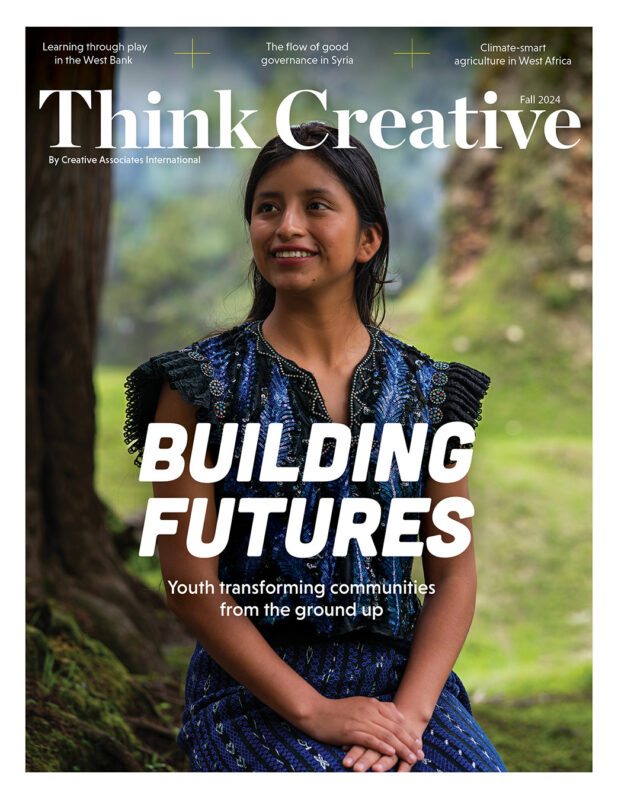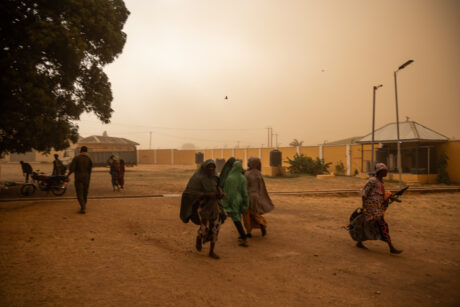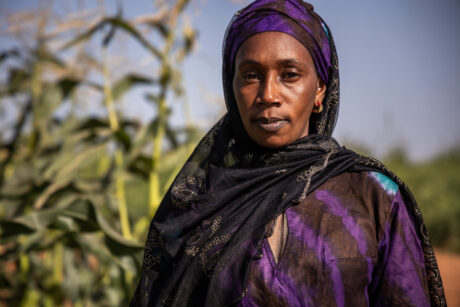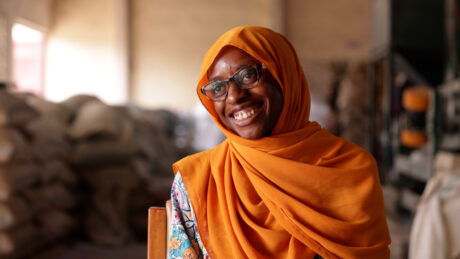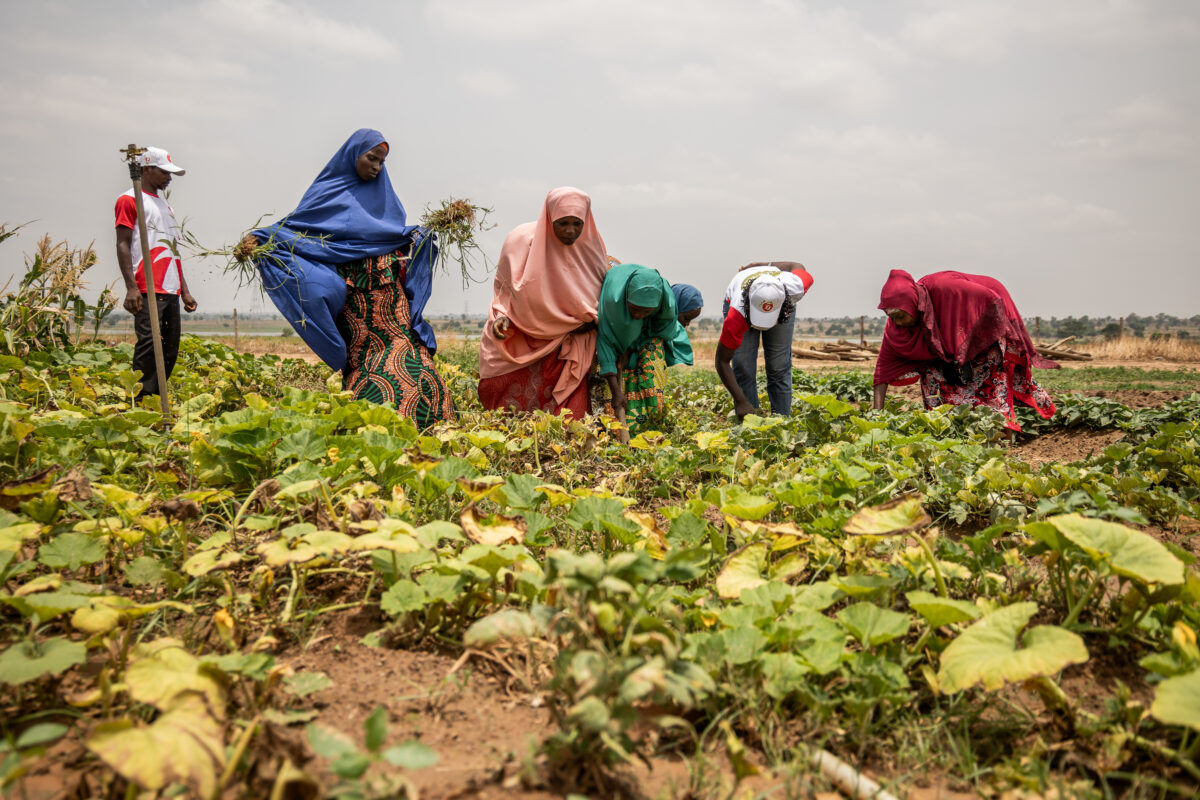
West African producers harness climate-smart agricultural innovations, from indigenous practices to cutting-edge technology, to adapt to rising environmental shocks.
West Africa experiences significant climate variability, marked by rising temperatures, unpredictable rainfall patterns and more frequent extreme weather events like droughts and floods. These conditions challenge the region’s agricultural sector, which relies on predictable weather patterns.
From 2019 to 2024, USAID’s West Africa Trade & Investment Hub worked to boost regional food security and livelihoods through market-based co-investment. In the face of escalating climate challenges, Trade Hub partners in Ghana, Togo and Nigeria are pioneering efforts in climate-smart agriculture to foster resilience and environmental sustainability.
Planting trees and reforestation
Several grantees are planting trees to combat climate change and enhance agricultural resilience.
Trees play a crucial role in absorbing carbon dioxide, mitigating climate change and supporting biodiversity by providing habitats for different plants and animals. They also help prevent soil erosion, regulate the water cycle and improve air quality by filtering pollutants.
In Nigeria, grain processor Adefunke Desh has encouraged its supplier farms to plant trees to protect their crops.
“We’re recommending about 15 trees per hectare around the borders of farms,” says Ugochukwu Oguike, Chief Operating Officer of Adefunke Desh. “These trees serve as windbreakers, reducing the effects on plants during storms.”
Label d’Or, a Trade Hub grantee in Togo that sells shea butter, depends on trees. The company sources nuts gathered and processed by local cooperatives and pioneered reforestation efforts in their supplier communities.
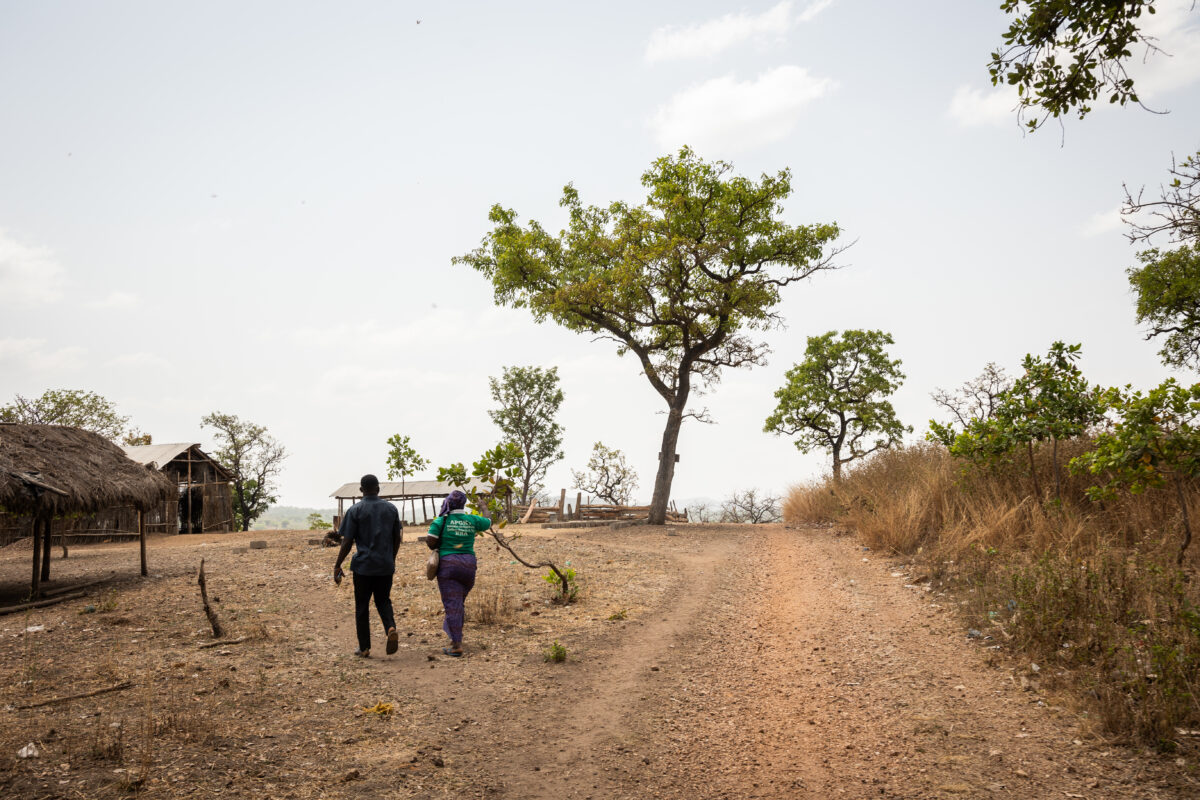
The Diheza cooperative, located near Sotouboua, Togo, once relied on charcoal production, leading to widespread deforestation. But since partnering with Label d’Or, they have begun replanting shea trees that promise both environmental benefits and economic opportunities.
“The shea tree is symbolic,” says Gustav Bakoundah, CEO and founder of Label d’Or. “And in keeping with organic principles, it’s always important to safeguard natural species like trees.”
Members of the Diheza cooperative have devised strategies to graft shea trees to reduce the time it takes for them to fruit.
“Before, when you replanted one, it would take 15 years or 18 years to start getting fruit,” says Panawa Méhéza, the cooperative’s president. “Now, we replant, and we can graft them after three years. After eight years, they will start to produce.”
Adapting to drought and desertification
Effective water management is essential for adapting to climate change, particularly in regions experiencing water scarcity. Water shortages in Nigeria have significantly impacted agriculture, leading to desertification and land degradation.
Adefunke Desh has encouraged its farmers to use cover crops to retain soil moisture during dry spells. Cover crops work like mulch to cover the soil’s surface while increasing its nutrient content.
“You don’t see a lot of results in the first year, but by the second and the third year, you begin to discover that you require less and less fertilizer because the soil is getting richer in organic content,” says Oguike.
Ehson Elijah, Smallholder Program Head at Tomato Jos in Kaduna, Nigeria, says drip irrigation systems have helped farmers maximize water use efficiency.
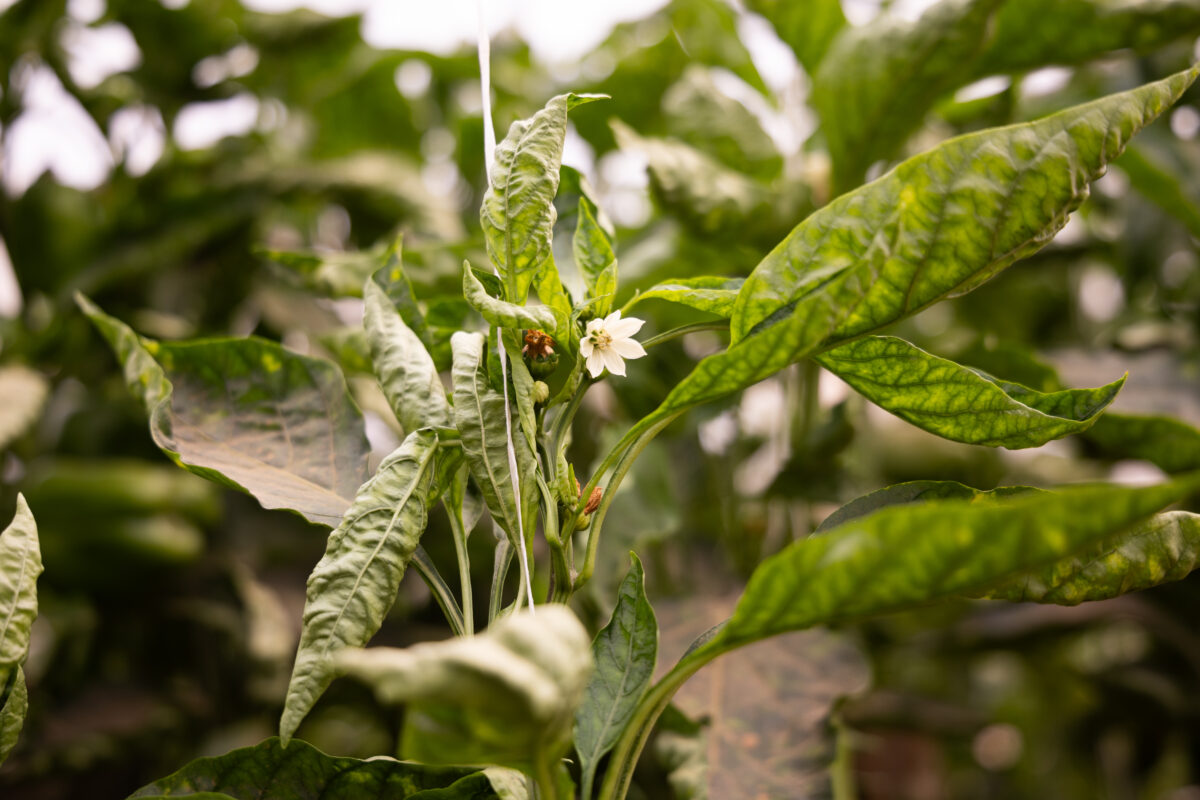
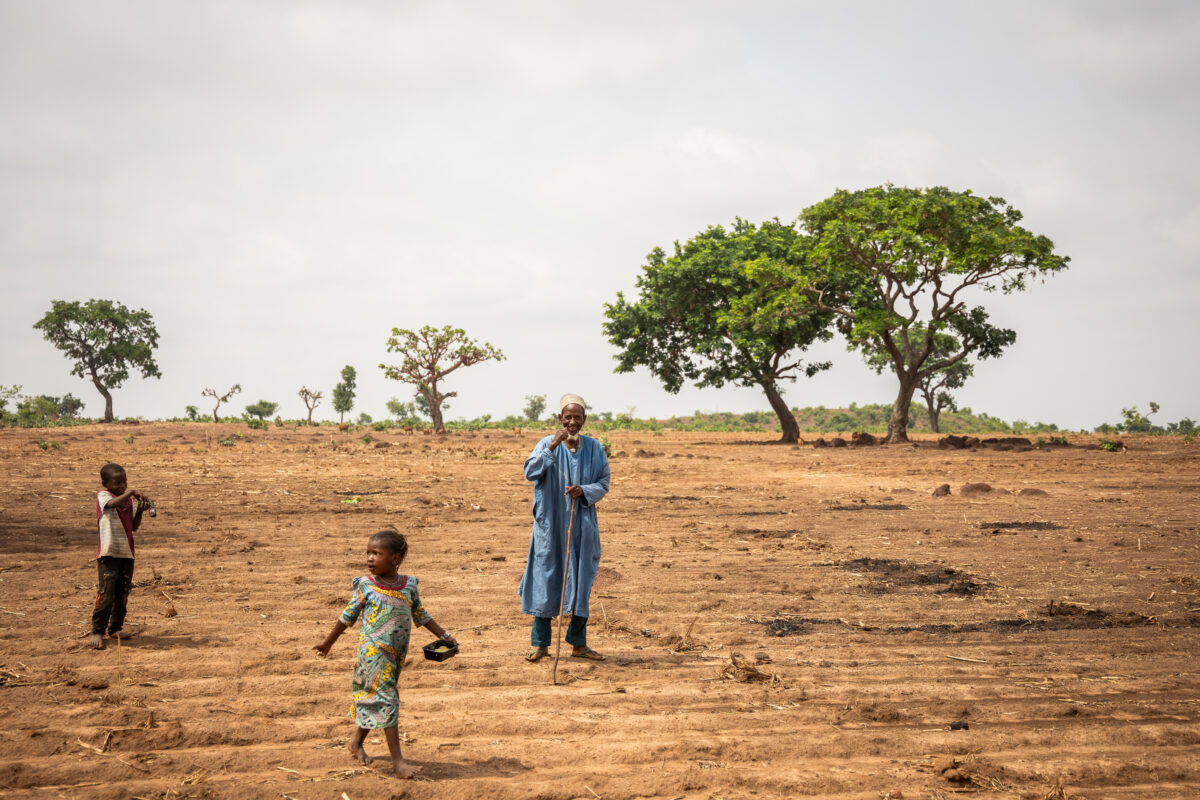
“Drip irrigation also allows for fertigation [supplying fertilizer to crops through an irrigation system], reducing nutrient erosion into aquatic ecosystems and minimizing fertilizer wastage,” he explains. This method ensures that every drop of water and ounce of fertilizer is used effectively, boosting productivity and sustainability.
In regions with erratic rainfall patterns and frequent droughts, like the north of Ghana, drought-resistant crops ensure food security and stable incomes for farmers.
In Tamale, Ghana, AMAATI focuses on cultivating and processing fonio, an indigenous, drought-resistant cereal. Fonio’s resilience to sparse rainfall makes it a reliable crop in regions where climate variability threatens agricultural productivity. Unlike many other cereals, fonio requires no chemical fertilizers or pesticides, reducing both the environmental impact and the cost of cultivation.
“The climate is one of the reasons why many crops are destroyed, especially in the northern part of this country, because of extreme heat and erratic rains,” says Salma Abdulai, AMAATI’s CEO. “Fonio is able to withstand these bad weather conditions, whether there is flood or whether there is drought, and for that reason, when farmers are able to cultivate fonio, they become climate resilient and are able to make use of climate change-induced opportunities.”
Moreover, fonio plays a crucial role in soil regeneration. Farmers can improve soil health by cultivating fonio on marginal lands and transforming unused or degraded areas into productive farmland.
“Fonio derives its nutrients six meters down the soil, so it doesn’t make use of topsoil,” Abdulai says. “Women around here don’t own land, and it’s difficult for them to access fertile lands for farming. When they get these poor soils, they will be able to cultivate fonio and then eventually regenerate the land for them to cultivate other crops, make more income and have better livelihoods.”
AMAATI’s comprehensive approach includes training, plowing services, and distributing seeds to smallholder farmers, focusing on empowering women.
Waste management and green energy
Managing waste and harnessing alternative energy sources reduce the amount of greenhouse gases emitted into the atmosphere. Several of Trade Hub’s shea sector grantees have transformed how they power their processes.
In Tamale, Ghana, The Savannah Fruits Company (SFC) uses traditional methods to process hand-crafted shea butter. In the past, Ghanaian women have turned shea nuts into butter by hand using wood stoves. SFC provides its network of more than 21,000 women across West Africa with modernized equipment and stoves that increase efficiency while reducing the dependence on firewood.
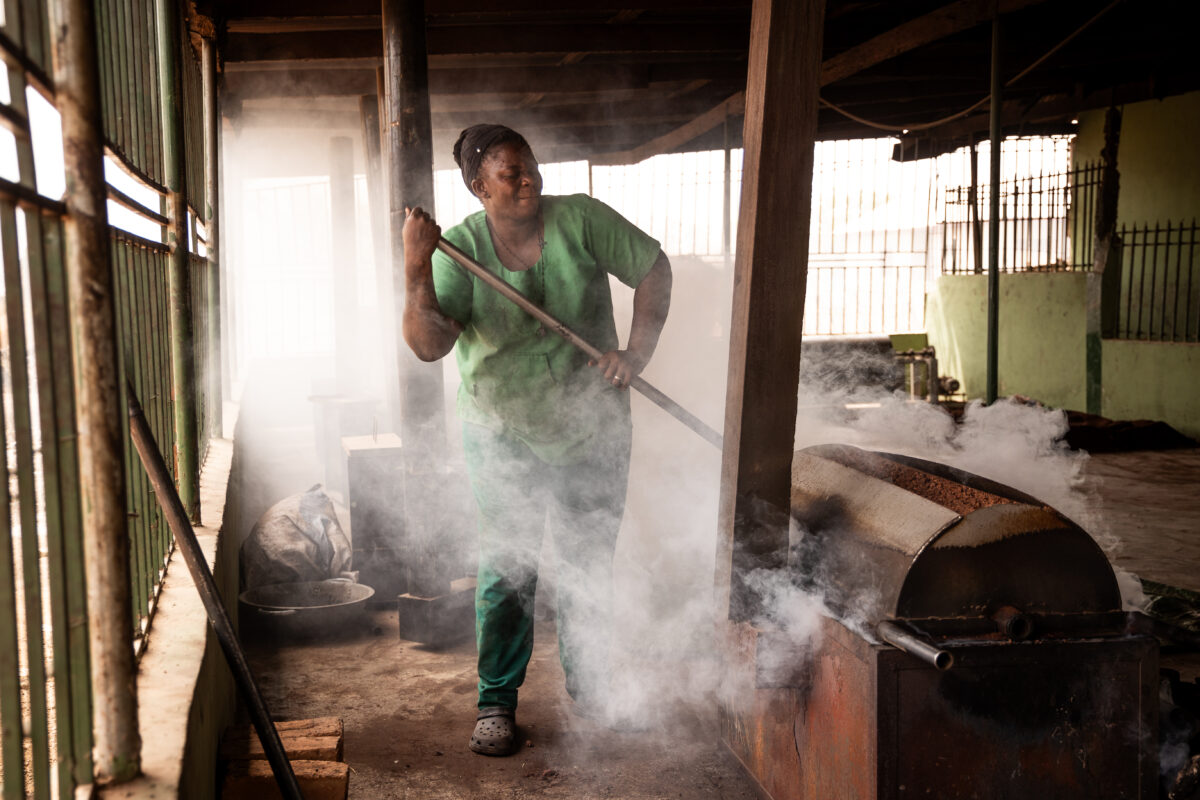
In an effort to reduce inhalation of airborne particulate matter among the women and eliminate the use of firewood, SFC taught these women to dry out shea byproducts and form them into briquettes as biomass fuel. These briquettes can be used instead of firewood, reducing deforestation and smoke emissions.
“We do not have to deplete what we are enjoying today for the next generation,” says Gladys Atanga, Commercial Manager for Savannah Fruits Company. “So it’s all about keeping the environment green. At SFC, we are passionate about keeping our environment for the safety of the next generation to come.”
In Togo, Label d’Or’s climate-smart shea factory was created with an emphasis on green energy. Solar panels and a mini power plant generate two-thirds of the factory’s electricity. Plus, transparent roof panels allow natural light to flood the workspace, reducing the need for artificial lighting.
“It’s not just beneficial for the environment; it’s beneficial for us too, for the business, because we make economies of scale and because it goes along with today’s international demands,” says Bakoundah.
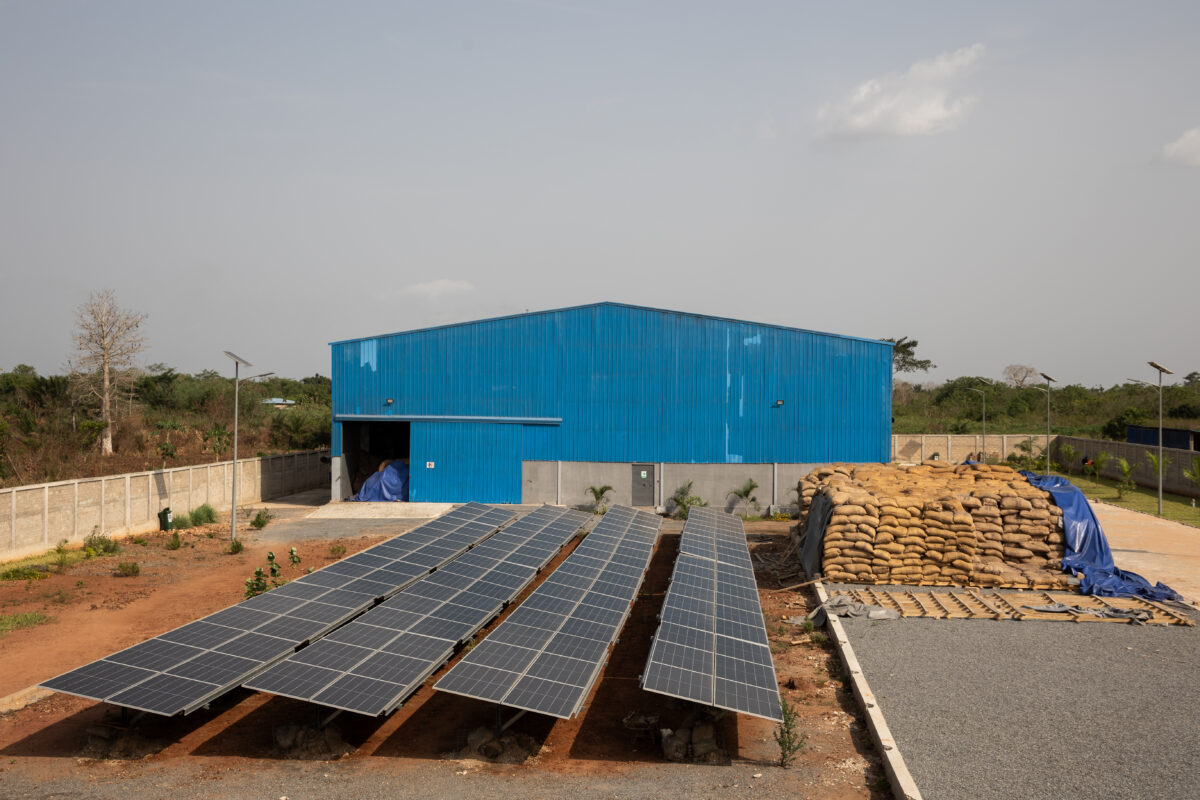
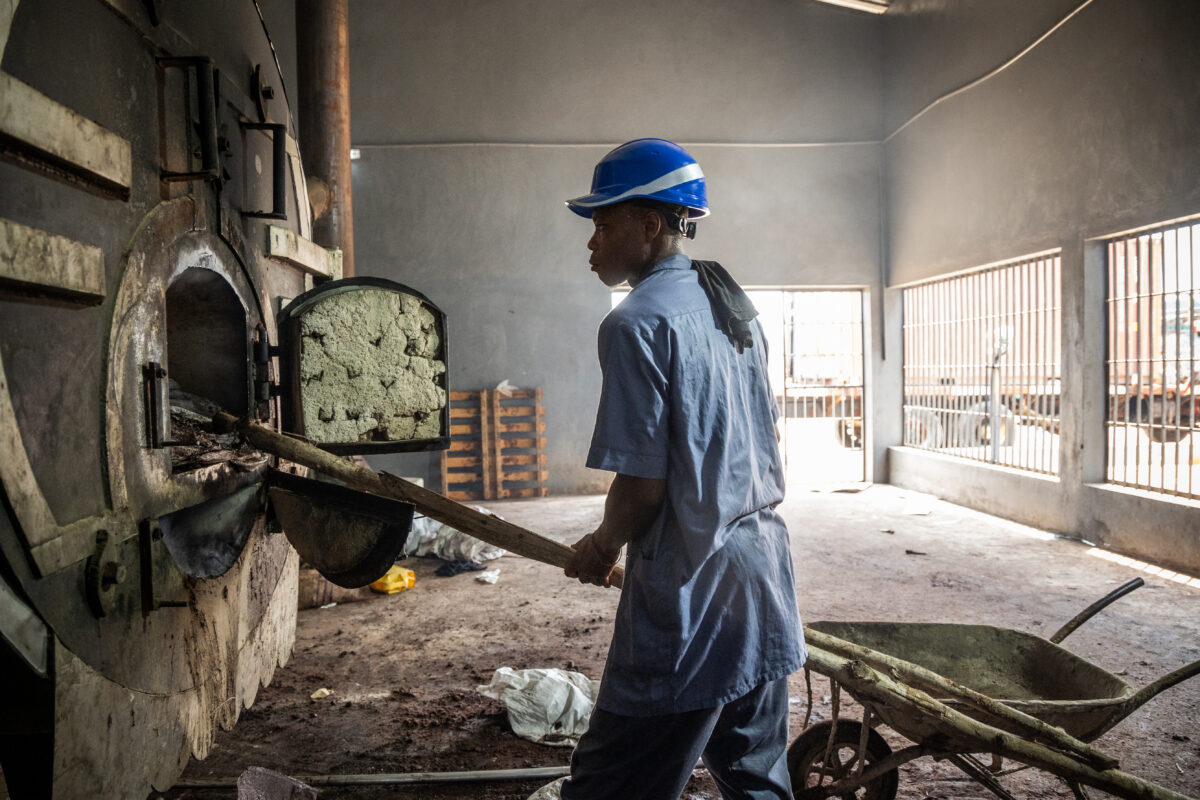
Like SFC, Label d’Or also uses shea byproducts as fuel. The shea “cake” left after processing is used as a clean energy source in the factory’s boiler to create steam, eliminating the need for fossil fuels.
The success of each of these environmental interventions by the Trade Hub’s partners underscores the integral role of USAID support in fostering sustainability and climate adaptability. Co-investment grants, technical assistance, and collaboration have made innovation possible, enabling the Trade Hub’s partners to break new ground in sustainable agriculture.
